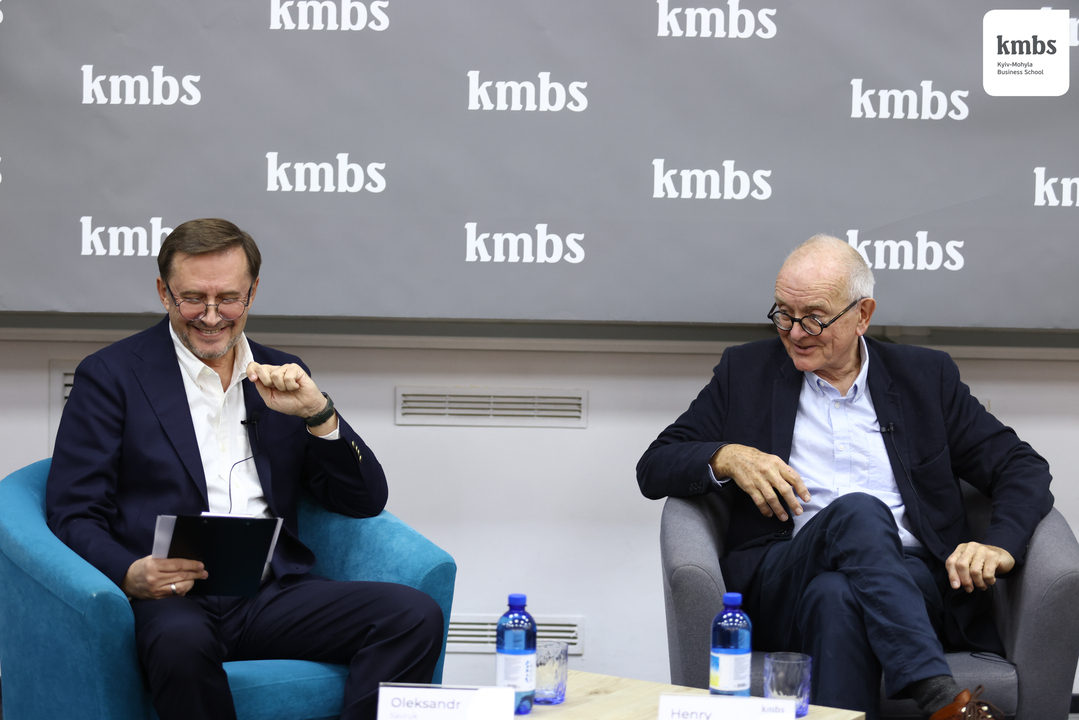On October 10, the Kyiv-Mohyla Business School hosted a unique meeting with Henry Marsh, a well-known neurosurgeon, a pioneer of neurosurgical care for Ukraine, and the author of the bestseller "Stories of Life, Death, and Neurosurgery." Mr. Henry talked with the school dean, Oleksandr Savruk, and the participants present at the event and answered their questions. Andriy Myzak, a neurosurgeon and translator of Henry Marsha's books into Ukrainian, moderated the meeting.
Opening the event, Mr. Andrii said that Henry Marsh started coming to Ukraine even when many considered us a part of Russia, and his colleagues in Great Britain wondered why he didn't go to Moscow or St. Petersburg. "It's simple — I don't like Russians," Mr. Henry says today.
He started his career as a neurosurgeon at the age of 31 (and before that, he studied politics, philosophy, and economics). "At that time, I believed in the idea of a neurosurgeon as an individualistic hero, a great person," he says. — And he stopped operating after 40 years with the conviction that the main thing is teamwork, and the lone hero is a mistake and a myth."
Henry Marsh also said there is a common prejudice about neurosurgery: "People think that brain surgery is complicated; they talk a lot about how important it is for a surgeon to have steady hands. But, when you have already learned how to operate, the operation itself is the easiest part. Errors caused by the surgeon's hand twitching or slipping and causing damage are rare. The largest number of medical errors is related to incorrect decision-making. Similarly, the most difficult thing in neurosurgery is to make the right decision."
Interestingly, despite the scientific development in neurosurgery, Mr. Henry is sure that the fundamental things remain unchanged. These are diagnosis, management, the ability to talk with patients, practice with complications, and make decisions.
During the event, participants had the opportunity to speak with kmbs guests about various aspects of medicine and leadership. And the thoughts shared by Mr. Marsh resonated with the managers — because decision-making is also critical for them.










